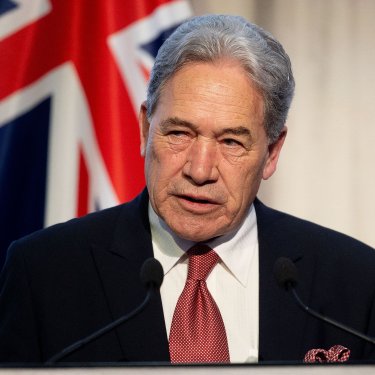New Zealand: RSF calls on Prime Minister to reaffirm his government’s commitment to press freedom

In response to the new Deputy Prime Minister's repeated verbal attacks on the media, Reporters Without Borders (RSF) calls on New Zealand’s Prime Minister Christopher Luxon to reaffirm his government's support to press freedom.
Just after taking office, the newly-appointed Deputy Prime Minister and Minister of Foreign Affairs of New Zealand, Winston Peters, declared in an interview that he was "at war" with the media. A statement that he accompanied on several occasions with accusations of corruption among media professionals.
He also portrayed a journalism support fund set up by the previous administration as a "55 million dollar bribe". The politician also questioned the independence of the public broadcasters Television New Zealand (TVNZ) and Radio New Zealand (RNZ). These verbal attacks would be a cause of concern for the sector if used to support a policy of restricting the right to information.
"By making irresponsible comments about journalists in a context of growing mistrust of the New Zealand public towards the media, Deputy Prime Minister Peters is sending out a worrying signal about the newly-appointed government’s attitude towards the press. We call on Prime Minister Christopher Luxon to reaffirm his government’s support for press freedom and to ensure that all members of his cabinet follow the same line.
On several occasions during the general election campaign, Winston Peters, founder and leader of populist and nationalist New Zealand First party, attacked New Zealand journalists, regularly accusing them of lies. In October, a few days before the election day, he attacked TVNZ journalist Jack Tame whom he called a "dirt merchant" and "corrupt" person.
According to the Auckland-based Research Centre for Journalism, Media and Democracy, the public's distrust of journalism has been growing in recent years, with 42% of New Zealanders saying they trust the news in 2023, down from 53% in 2020.
In order to globally address the growing presence of false and manipulated information online, RSF together with several other civil society organisations initiated the Forum on Information and Democracy, which published in 2020 a set of 250 recommendations. RSF also launched the Journalism Trust Initiative (JTI) a mechanism to promote trustworthiness of news and information, which, to date, is used by more than 800 newsrooms worldwide to self-assess their internal processes.
New Zealand is ranked 13th out of 180 countries in RSF’s 2023 World Press Freedom Index.
